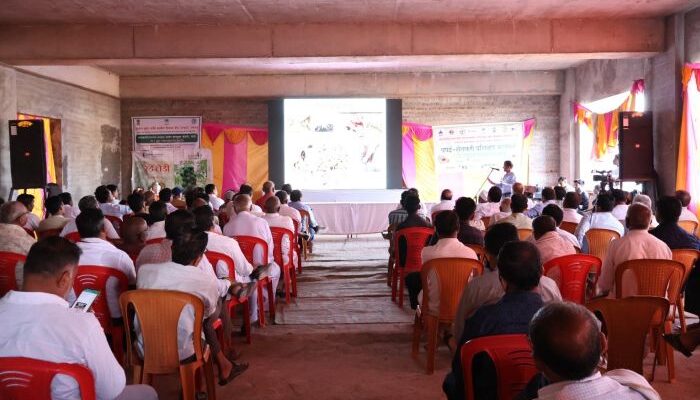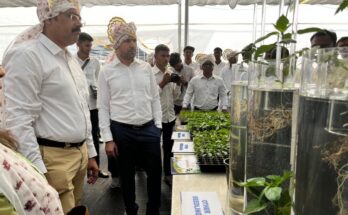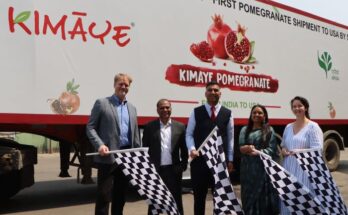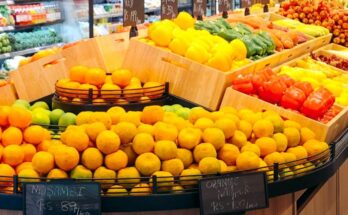Dhule, Maharashtra: The NMIMS School of Agricultural Sciences and Technology (SAST); Department of Agriculture, Government of Maharashtra and Jai Swaminarayan Banana Farmers’ Producers Company, Tardi, jointly organised a ‘Farmer-Scientist-Industry Workshop on Good Agricultural Practices for Papaya Cultivation’ today at Agricultural College Farm, Tardi, Shirpur, Dhule district in Maharashtra.
In Shirpur taluka, farmers grow papaya in about 12000 to 15000 acres annually. As the papaya planting season is going to commence soon, the workshop covered all aspects of papaya cultivation, from selection of the right variety, crop health management, and healthy fruit production for realising higher productivity of quality fruits and also meeting export market demands. More than 300 farmers from Shirpur, Dhule and Nandurbar areas attended the event.
KM Tadavi, Senior District Agricultural Officer, Dhule district, was the chief guest of the event while Dr. Suseelendra Desai, Dean, SAST, presided over the event. In his address, Tadavi explained to the farmers about various government schemes for the benefit of papaya farmers. In his address, Dr. Desai highlighted the need to identify the problems of the farmers so that the right research is done by scientists leading to developing products useful for farmers. He also highlighted the vision of Amrishbhai Patel for enhanced livelihoods of the farming community and high-quality agricultural education to the students.
You may also like to read – Pomegranate export: APEDA facilitates India’s first commercial trial shipment to the US via sea
Dr. Udyansree Prakash Kulkarni, with more than 50 years of agro-industry experience has provided support to draw experts from different parts of India. Expert lectures were delivered by Tanaji Naikanwate, Sanjay Biradar, Anil Chitnis, Yashdipsingh Girase and Vasant Kumar as they deliberated on balanced nutrient application, use of biologicals, critical stages of water management, pest and disease management including viruses and care to be taken to produce export-quality fruits. A handbook on Papaya Good Agricultural Practices was released.
The farmers brought their irrigation water quality samples which were tested by the students of B.Sc. (Hons.) Agriculture under the faculty guidance. An exhibition of various products was also organised during the workshop for the benefit of the farmers in which more than 10 companies participated.
Padmakar Patil, President, Jai Swaminarayan Banana FPC, extended full support in organising the event while Ganesh Nazrikar helped in organising the event. The event was coordinated by faculty and students of the School of Agricultural Sciences and Technology. Many farmers felt that the workshop was very useful and expressed their satisfaction.
You may also like to read – CMFRI launches mobile app to encourage citizen science initiative in marine fisheries research
The meeting was organised with extensive support from the University administration and MPTP- Shirpur Campus.
Speaking about the workshop, Dr. Suseelendra Desai said, “With evolving challenges in agriculture, it has become important to bridge the gap in knowledge transfer systems to benefit needy farmers by identifying and understanding the needs of our farming community, we can develop cost-effective and innovative solutions that enhance farm profitability and ensure sustainable livelihoods. Looking at the success of the event, we are enthused to organise many more such events for focused crop and dairy farmers of banana, cotton and millets. In our endeavour to train agricultural graduates, we involve them actively in such outreach activities so that they hone their skills for effective and efficient engagement of the stakeholders.”
“Our collaboration with farmers and industry partners reflects our commitment to high-quality agricultural education and meaningful contributions to the agricultural sector,” Dr. Suseelendra Desai added.





